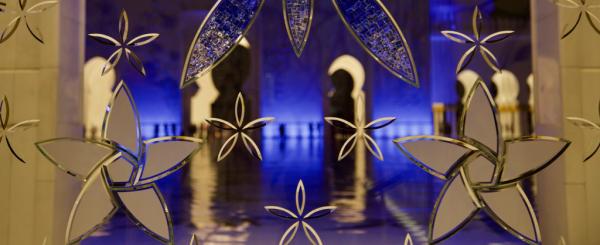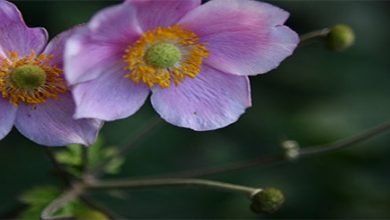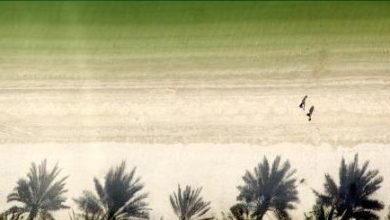PART 5-THE TYPES OF PATIENCE

Patience should be with Allah, for Allah and towards Allah.
One can be patient voluntarily or involuntarily. Patience for Allah is voluntary when you have a choice to be patient and you exercise that choice consciously. For example, when you have money and you love it, but you spend it for Allah regardless of your love for the money. This is different from one who bears poverty with patience, because in this case, the situation is beyond his control. Voluntary patience is higher than the patience of the one who lacks a choice.
Often, we are forced to be patient upon adversity or death. Even if we choose not to be patient, the situation will not change. Worse, the impatient one will be punished by Allah, and the will become even more severe, due to the lack of patience and gratitude.
When something is ordained or is beyond our control, we have to be patient for Allah. There is also conscious patience for Allah when we perform good deeds, such as voluntary prayers, or refraining against what we love, such as going dancing or sunbathing at the beach. There is patience for Allah for good deeds, and the patience of Allah for fara’id, plus the patience for Allah for refraining from sins.
We should therefore try to achieve voluntary patience, such as sacrificing our sleep for a few moments of prayer in the middle of the night, being kind to the ones who have wronged us, being charitable even though our budget is tight, or even bearing a burdensome task with a cheerful attitude. It could also be demonstrated by what we refrain from – instead of joining the watching the latest sensational movies or TV series which often contain obscene, lewd or time wasting content, we can exercise patience and abstain from watching them entirely.
What about patience in the time of calamity? Eventually, if Allah has taken all the other options away, one has no choice but to be patient for the calamity to pass. However, the test is at the first reaction. If the situation is prolonged, many people lose patience. For example, one may be patient at a job loss, but what if a year passes and there is no employment in sight? Will he continue to be patient, or will he start panicking, become depressed or even turn towards haram solutions? If we believe in the qadr of Allah, we can be patient with what Allah has ordained, but otherwise, it is not easy to bear.
Allah tells us to be patient with the luxuries of dunia and to flee from dunia if it can destroy us. If Allah gives us dunia, how can we spend it quickly to free our souls from the clutches of materialism? How many rich Muslims are willing to give up even a fraction of their money for the sake of Allah, compared to the ones who keep on accumulating their wealth until they die?
Abu Talhah (RA) loved his orchards so much that his mind wandered to them even during salat. He was so attached to the orchard that it formed a veil between him and Allah, so he cut off the attachment by donating the entire orchard to Rasulullah (SAW) for the sake of Allah. Would you be as patient with your luxuries, and give a car or your best jewellery away for the sake of Allah? Once you give a significant amount of your wealth or salary to a level that causes personal discomfort to you, then you are on the right path. It distinguishes between one who gives away spare change and one who sacrifices something truly scarce or precious. Only then do you know that you are being patient with what Allah has given you.
This is why many Companions preferred the test of hardship and feared the test of ease. In hardship, one is backed into a corner and has limited options. In ease, one tends to be dazzled by dunia such that Allah is all but forgotten.
It is not the end of the world
Never think that your circumstances are the end of the world as you know it. Yunus (AS) was swallowed by a whale and had no escape save with Allah’s mercy. Yusuf (AS) was thrown to the bottom of the well by his own brothers and then sold as a slave. Yahya (AS) and his father Zakariyya (AS) were persecuted and murdered by their community. The Companions had to endure years of social and financial boycott from the Quraysh to the point they had to eat twigs and leaves to survive.
Even our role model, Muhammad (SAW) had a difficult life. His father died before he was born, his mother died when he was six, and his grandfather and guardian died when he was eight (and in some reports, ten). His first wife, Khadijah (AS), passed away before him, as did many of his children. He suffered poverty, physical abuse, verbal abuse, was persecuted by his own people and had to flee his home town. Yet he practiced patience at all times. After the conquest of Mekah, he did not help himself to the riches of the town or claim its seat of power, but continued to live and abjectly humble and frugal life until he passed away.
Patience is a status of the heart. Patience towards Allah is the level achieved by the Messengers and Prophets, who donate themselves willingly and completely for the sake of Allah without any worldly rewards.
Nothing can happen without the will of Allah.
Nothing can happen without the knowledge of Allah.
Nothing can happen without it being ordained by Allah.
Nothing can happen without the wisdom of Allah.
Allah will never take from you except to give you. If Allah gave the early Companions abundant wealth and material life, they used to cry because they were terrified that they could not be patient with such riches When Allah inflicted them with a trial and poverty, they were so happy, patient and thanked Allah.
In the Qur’an, Allah promises that the patient one will be rewarded by Allah without calculation. It is the only quality that Allah will reward His servants without any scales.
Say, “O My servants who have believed, fear your Lord. For those who do good in this world is good, and the earth of Allah is spacious. Indeed, the patient will be given their reward without account.” (Al Zumar 39:10)
Patience is a quality to be considered half of the iman. Ramadan is called the month of patience. Our life contains the cycle of giving and for us to show gratitude and thanks. The cycle of taking, hardship and calamity requires patience and thanks. In our lives, we will always go through the ups and downs, hot and cold, wealthy and poor, health and illness etc. The conditions will always change for Allah to check our faith, loyalty and trust in Him.
Many verses in the Qur’an emphasise gratitude and patience. One of the ultimately powerful elements of the journey of iman is patience. Ali ibn Talib (RA) said that patience in the journey of iman is like the head of the body, and no one can live without a head.
May Allah SWT decorate us with the beloved quality of patience which Allah and may Allah give us pardon and the ability to live the message and make it easy on us and decorate us with the quality of patience in the time of trial and hardship.
Note: we strongly recommend you to read the beautiful book called “Patience and Gratitude” by Ibn Qayyim Jawziyah. It will change your life.




